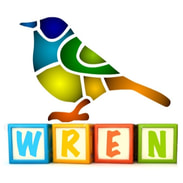Current Projects:
WREN is currently undertaking the projects detailed below across Wales. If you would like further information, or would like to get involved, please either contact WREN or the project lead via their email address, available via the 'Contact' link:
All Wales Respiratory Distress Syndrome Audit (3rd Round)
Project Lead: Dr Celyn Kenney (ST4) and Dr Chris Course (ST7)
Description: An ongoing assessment of the management of respiratory distress syndrome for infants born at <34 weeks gestation in Welsh level 2 and level 3 neonatal units
Protocol:
Description: An ongoing assessment of the management of respiratory distress syndrome for infants born at <34 weeks gestation in Welsh level 2 and level 3 neonatal units
Protocol:
| wren_project_protocol_rds_audit_2021.docx | |
| File Size: | 217 kb |
| File Type: | docx |
Improving recognition of high body mass index in paediatric outpatient clinics
Project Lead: Dr Jemma Wright
Description: BMI is not routinely calculated or acted upon in patients attending paediatric
outpatient clinics. the aim of this project is to increase the documentation of BMI on paediatric outpatient clinic letters, and To increase the recognition and treatment of children with high BMI.
Protocol:
Description: BMI is not routinely calculated or acted upon in patients attending paediatric
outpatient clinics. the aim of this project is to increase the documentation of BMI on paediatric outpatient clinic letters, and To increase the recognition and treatment of children with high BMI.
Protocol:
| wren_bmi_study_protocol.pdf | |
| File Size: | 400 kb |
| File Type: | |
Auditing the use of Less Invasive Surfactant Administration (LISA) on Welsh Neonatal Units
Project Lead: Neha Sharma, Clinical Fellow, Royal Gwent Hospital, Newport Contact
Description: LISA is a relatively recent method of surfactant administration in preterm infants and there is much discrepancy between neonatal units regarding its administration. This audit will try to review our ongoing practice and the challenges faced by the various units adopting this practice in prevention of chronic lung disease by reducing days spent on mechanical ventilation by infants having respiratory distress syndrome.
Protocol:
Description: LISA is a relatively recent method of surfactant administration in preterm infants and there is much discrepancy between neonatal units regarding its administration. This audit will try to review our ongoing practice and the challenges faced by the various units adopting this practice in prevention of chronic lung disease by reducing days spent on mechanical ventilation by infants having respiratory distress syndrome.
Protocol:
| wren_project_lisa_protocol.docx | |
| File Size: | 215 kb |
| File Type: | docx |
Effect of the COVID-19 pandemic on Child Protection referrals and subsequent Medical Assessments
Project Lead: Dr Louise Collingwood, ST4 Paediatrics ([email protected])
Description:
Null hypothesis: The COVID pandemic has not altered the amount of child protection medicals that have been completed by community paediatrics. There has been no change in management or outcomes.
Aims:
Description:
Null hypothesis: The COVID pandemic has not altered the amount of child protection medicals that have been completed by community paediatrics. There has been no change in management or outcomes.
Aims:
- To audit the management of child protection referrals
- To highlight areas of good practice
- To identify areas where improvements in practice can be made for the remainder of the pandemic
| cp_medicals_covid.docx | |
| File Size: | 215 kb |
| File Type: | docx |
Significance of urine microscopy and culture in infants with prolonged jaundice
Project Lead: Dr Megha Jagga (ST4 Paediatrics); [email protected]
Description: Routine screening for urine infection in well babies with prolonged jaundice should be reconsidered as the rate of urine infections in infants in the UK are very low and non-invasive methods of urine collection lead to contaminated, erroneous results causing increased parental anxiety related to repeated samples.
Aims are:
1. To identify the cases of urine infections diagnosed and treated after prolonged jaundice screen in well infants in Wales.
2. To identify number of repeat samples taken for contaminated results.
3. To identify number of urine samples taken by an invasive method (eg. Catheterization).
Protocol:
Description: Routine screening for urine infection in well babies with prolonged jaundice should be reconsidered as the rate of urine infections in infants in the UK are very low and non-invasive methods of urine collection lead to contaminated, erroneous results causing increased parental anxiety related to repeated samples.
Aims are:
1. To identify the cases of urine infections diagnosed and treated after prolonged jaundice screen in well infants in Wales.
2. To identify number of repeat samples taken for contaminated results.
3. To identify number of urine samples taken by an invasive method (eg. Catheterization).
Protocol:
| wren_project_protocol_pjanduti.docx | |
| File Size: | 216 kb |
| File Type: | docx |
Vitamin D status in gastrostomy/jejunostomy fed children with cerebral
palsy(GMFCS 2-5)
palsy(GMFCS 2-5)
Project Lead: Dr Sarah Myers (Community GRID Trainee) [email protected]
Research Questions:
Do children with cerebral palsy GMFCS 2-5 who are gastrostomy fed have significant
hypovitaminosis D & would they benefit from vitamin D supplementation?
| vitamin_d_deficiency_in_gastrostomy_fed_children_with_cerebral_palsy_gmfcs_2-5.docx | |
| File Size: | 17 kb |
| File Type: | docx |
Projects under Development:
WREN is also in the process of planning projects to undertake at a future date. If you would like further information, or would like to get involved, please either contact WREN or the project lead via their email address:
title 0


